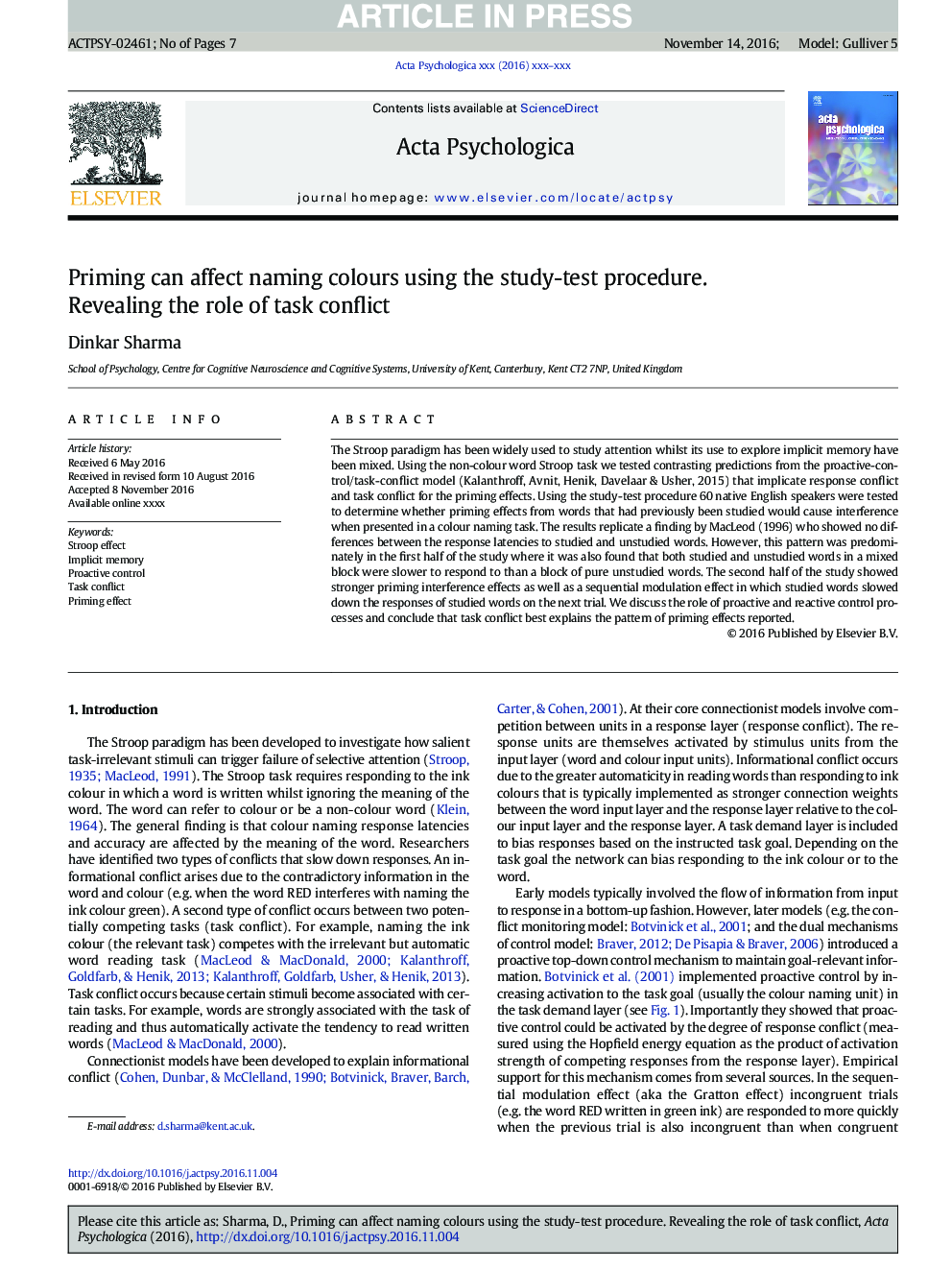| Article ID | Journal | Published Year | Pages | File Type |
|---|---|---|---|---|
| 10226691 | Acta Psychologica | 2018 | 7 Pages |
Abstract
The Stroop paradigm has been widely used to study attention whilst its use to explore implicit memory have been mixed. Using the non-colour word Stroop task we tested contrasting predictions from the proactive-control/task-conflict model (Kalanthroff, Avnit, Henik, Davelaar & Usher, 2015) that implicate response conflict and task conflict for the priming effects. Using the study-test procedure 60 native English speakers were tested to determine whether priming effects from words that had previously been studied would cause interference when presented in a colour naming task. The results replicate a finding by MacLeod (1996) who showed no differences between the response latencies to studied and unstudied words. However, this pattern was predominately in the first half of the study where it was also found that both studied and unstudied words in a mixed block were slower to respond to than a block of pure unstudied words. The second half of the study showed stronger priming interference effects as well as a sequential modulation effect in which studied words slowed down the responses of studied words on the next trial. We discuss the role of proactive and reactive control processes and conclude that task conflict best explains the pattern of priming effects reported.
Related Topics
Life Sciences
Neuroscience
Cognitive Neuroscience
Authors
Dinkar Sharma,
